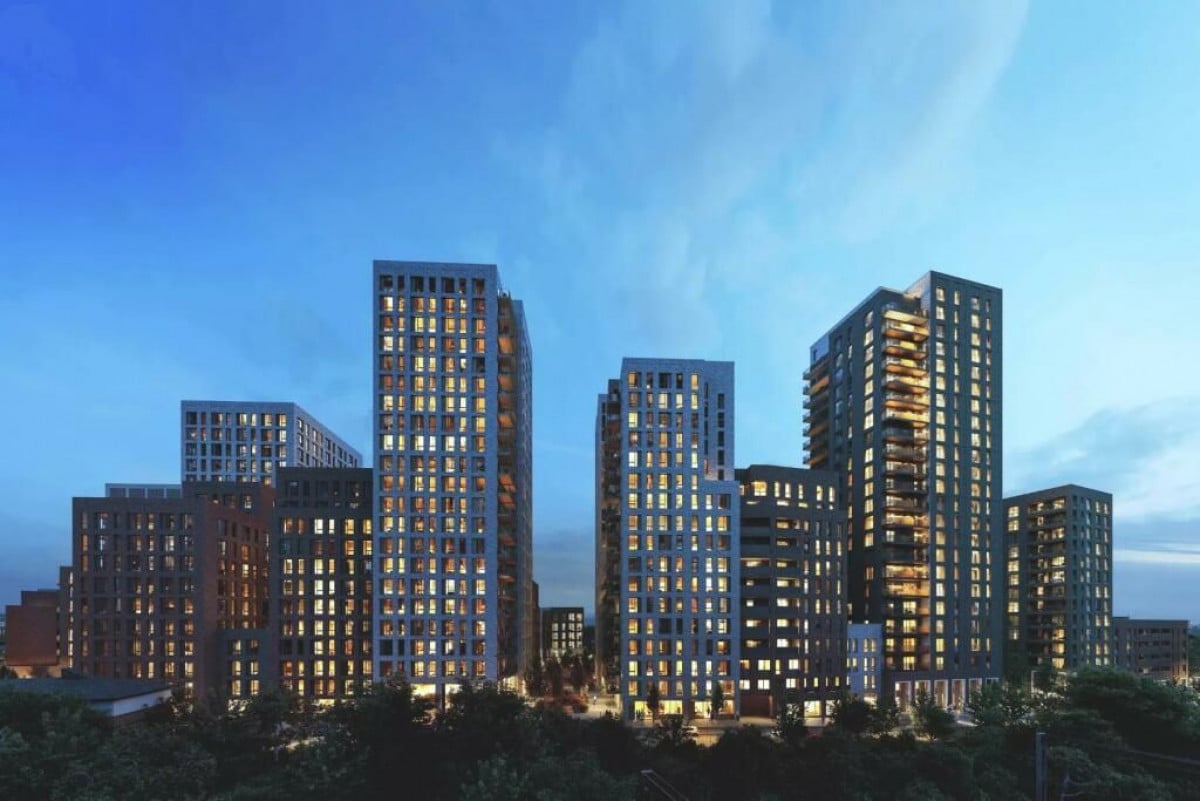Is Your Home Suitable For An HVAC Installation?

2023 has been a somewhat volatile year for UK residents, with fluctuating energy prices, cost of living pressures, and economic turbulence making up just a few everyday concerns.
Add a housing market poised for uncertainty and increased pressure to be more eco-friendly to the mix, and you have people facing a plethora of stresses. Homeowners, in particular, are looking at ways they can navigate the constant battle of soaring interest rates and inflation, while trying to keep their properties at a healthy temperature, at a reasonable price, and without causing undue harm to the environment.
On the surface, this sounds like a near-impossible task.
HVACs: An Eco-Friendly and Efficient Alternative
However, what if we were to tell you there was a way you could keep your home warmer this winter (and cooler as summer approaches), at a reasonable cost, without significant harm to the planet's resources? Installing a heating, ventilation, and air conditioning (HVAC) system can provide an efficient, cost-effective solution for temperature control, regulation, and air quality. The further benefit will be that it emits less carbon than traditional gas boilers.
Why wouldn't you equip your home with a solution that provides all these benefits, and more?
However, it's important to note that not every home may be suitable for a large-scale HVAC installation. For certain properties in the UK, retrofitting HVAC solutions might not be as beneficial as retaining incumbent boilers. It's important to assess and understand whether your property meets the criteria before contacting a local HVAC technician. This short guide explores the key factors to consider when determining the suitability of your property.
Assessing Your Home's Layout and Structure
The first step is to evaluate your home's layout and infrastructure carefully and methodically. HVAC systems require sufficient space for vents, ductwork, condenser units, and outside filtration units, to name a few.
Consider the size and square footage of your property, as not all homes may have enough space inside to accommodate a wall-mounted or ceiling-mounted HVAC system. The system needs to be properly sized for your internal space.
Therefore, if you live in a leasehold property with multiple other occupants, you may not qualify for an individual HVAC system. Multi-level homes may need more powerful commercial HVACs and extensive ductwork routing conditioned air vertically. This may have to be commissioned directly via the property's landlord.
A larger freehold home may be better suited to a domestic HVAC system, particularly if there is sufficient space in an attic, basement, or crawlspace that can accommodate running ductwork and storage options for units.
Take as many measurements as possible, examining all accessible areas to determine if your home has sufficient space to house the HVAC unit itself, as well as the ducts. It's recommended that you consult a technician to give you an accurate opinion and insights on whether your property and structure can accommodate a retrofit.
Evaluating Your Budget
It's well-documented that HVAC systems do have significant upfront costs and these will have to be factored in if you're upgrading your home's heating system.
The costs are attributed to the equipment itself, including condensers, coil units, furnaces, air handlers, as well as the ducts. The larger and more powerful the unit, the higher the upfront price. Hiring the services of an HVAC installer will also have labour costs factored in, with some firms offering additional services like permit acquisitions, duct installations, smart thermostats, and others.
As per recent trends from CheckATrade, basic domestic HVAC systems cost in the region of £5,000 upwards, while larger systems can cost significantly more. As far as calculating operating costs go, coupled with maintenance, energy bills, and others, you could be exceeding your initial budget quickly. However, determine your budget and weigh up the costs versus the benefits, as you may end up saving more in the long term with an HVAC, instead of using outdated, ineffective heating and cooling systems that don't conserve as much energy.
Checking Compliance With Regulations
HVAC installations in homes will require you to comply with relevant building regulations and codes. The system itself must meet new UK efficiency standards and seasonal efficiency ratings. These are the Seasonal Energy Efficiency Ratio (SEER) for cooling and Seasonal Coefficient of Performance (SCOP) for heating.
Both measure the annual energy consumption and efficiency in day-to-day usage. All manufacturers are required to provide SEER and SCOP values, so you will need to check the certification labels of products and that of your installers. Some areas require you to obtain permits before commissioning any work.
Installing ducts or vents in shared walls may require the input of your adjoining property owner. In such cases, you will need to issue a party wall notice courtesy of a third-party surveyor acting on your behalf, as this constitutes building work. Obtaining consent can take time and involve multiple hoops to jump through before a resolution is agreed, at which point, you can commence building work. Listed buildings require specialist consultation and regulation compliance.
In short, research what building codes and regulations you must comply with if you are to install a new HVAC system in your property. Obtain all necessary approvals before you commission anything, as you do not want to be dealt a legal notice or fine for not acquiring the necessary permission.
Considering Equipment Access Needs
HVAC units will require regular maintenance, servicing and occasional repairs. For this to be done periodically and without worry, it's wise to make sure the equipment is accessible.
Make sure any outdoor condenser units are installed on solid bases near exterior walls, and that there is sufficient space around the unit. Air distribution units installed inside the property will also need to be easily reachable, which is made easier if they are situated in uncrowded areas. Changing filters and securing vents or coils will need to be done regularly so avoid installing them in heavily obstructed areas.
Evaluating Your Heating & Cooling Requirements
Fundamentally, if a central HVAC system is to be installed in your property, it should be done with a view to providing long term value. Assessing your location's climate, sun exposure, household needs, size, and occupancy levels can help you make this decision more straightforward.
The more residents in your home and the larger your inside space that requires heating or cooling, the more powerful and reliable the HVAC unit(s) you will require. Take note of rooms that face south or west and have extensive glazing. These areas may require additional cooling during hotter months, due to increased sun exposure. Conversely, more isolated areas within your home may require additional heating.
When selecting an HVAC system, it's crucial to carefully assess both current and future requirements of your home and occupants. Ultimately, it can work, but you may have to pay more attention to special units that offer better airflow and temperature control.
Exploring Incentives and Benefits
Upgrading to a domestic HVAC system is a major, significant home improvement project that shouldn't be rushed. It requires careful evaluation of several aspects of your home before you should consider upgrading your home's existing gas boiler.
However, incentives like the Boiler Upgrade Scheme or Home Upgrade Grant can make this transition all the more easy and efficient, as preserving costs and energy efficiency still weigh heavily on the minds of many homeowners. You may wish to give these some thought and see whether you meet the qualifying criteria for a government grant to secure the installation of renewable heating solutions in your home.
With proper planning and research, you can give your home comfort all year round courtesy of an HVAC system that provides a more environmentally-friendly and cost-effective form of heating and cooling.
Image is of a beautiful 1 bedroom apartment in London available for sale December 2023. Get to Heathrow Airport in only 18 minutes. For the full listing, please click here.
Subscribe to our blog for the latest property news!
Company Registered in England and Wales | Company Name: Griffin Property Co | Company Reg No.09362284



















